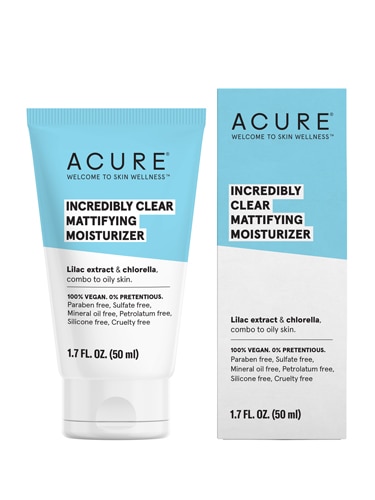In the world of skin care, you hear many statements about ingredient absorption and toxic load. The skin is one of the most powerful organs of the body, regulating temperature to protect your vital organs; holding in key nutrients and moisture; and acting as a defensive barrier to environmental toxins, bad bacteria and UV radiation.
Although the skin is a supreme protector, it is not impenetrable. Chemicals or synthetic substances can potentially enter the bloodstream or accumulate in tissues to varying degrees based on their size and composition. The integrity of your skin also plays a significant role in ingredient absorption, as does the body temperature, areas of exposure and concentration of product. Toxic chemicals can more readily penetrate skin that is broken or stripped versus healthy and intact. The thinner skin of the face and neck have greater ability for penetration than the thicker skin of the hands and feet.
Several of these questionable chemicals remain in skin care under the assumption that in small amounts, they carry little danger. However, growing studies show that even in minor doses, these toxic chemicals can potentially interact with one another, causing greater negative harm. A study reported in The Los Angeles Times stated, "Some chemicals, such as those that mimic hormones, may actually be more dangerous at lower doses because the human body is exquisitely attuned to respond to minute amounts of natural hormones such as estrogen and testosterone.”
With so many variables, it feels virtually impossible to know exactly how much negative exposure we are inflicting on ourselves every day and how to choose skin care that is both healthy and effective. This guide can help.
1. Know which skincare ingredients to avoid
It is important to look for brands that have purity in formulation; avoiding ingredients like the following:
MEA (Monoethanolamine), DEA (Diethanolamine), or TEA (Triethanolamine) derivatives
These function as foaming agents and emulsifiers to keep ingredients from separating. They are possible carcinogens that may result in further carcinogens not listed on the label.
Typically listed as: MEA, DEA or TEA
Parabens
These work as preservatives in many conventional products but are suspected to be endocrine disruptors and possible carcinogens.
Typically listed as: Methyl/ethyl/butyl/isobutyl/propyl paraben
PEG (polyethylene glycol) compounds
These are petroleum-based compounds used as thickeners, solvents, softeners and moisture carriers. They may also be contaminated with carcinogens like 1,4-dioxane and could potentially help carry these impurities further in the skin, leading to fertility and child-development issues.
Typically listed as: PEG
Phthalates
Oddly, this ingredient is a plasticizer, but it also works to hold fragrance. It is potentially an endocrine disrupter and respiratory toxicant that can cause birth defects, infertility in males, pregnancy loss and childhood brain-development interference.
Typically listed as: Anything with “phthalate” in the name or DBP, DEHP, DMP or DEP
Sulfates
This ingredient is a foaming agent and emulsifier found in everything from cleanser to toothpaste. It is a common irritant and penetration enhancer, and it may be contaminated with the 1,4-dioxane carcinogen. It is also terribly stripping to both healthy skin and the hair barrier.
Typically listed as: Sodium lauryl/laureth sulfate, sodium dodecyl sulfate, sodium salt sulfuric acid or monododecyl ester
Silicones
Silicones are used to seal in moisture, emulsify and create a slippery application. They are often used in makeup, primers, creams, serums and hair products to fill in gaps and uneven texture on the skin and hair. They are non-biodegradable and can accumulate in the pores, leading to congestion and less-efficient barrier function.
Typically listed as: Dimethicone, trimethicone or words ending in -cone, -conol, -col or -xane.
2. Choose products properly formulated for skin
Once you have navigated through the ingredients that don’t optimize the body and skin’s performance, look for these elements that do:
pH-acidic formulas
The skin and hair is happiest at an acidic 4 to 6 on the pH scale. This protects the natural sweat and oil secretions that form your acid mantle. This protective barrier holds in necessary moisture, hydration and healthy bacteria while helping to ward off bad bacteria, environmental toxins and damaging UV exposure.
Third-party clinical testing
You want products that do what they claim. Most consumers assume that natural products don't work as well as conventional. However, clean formulas can also be smart formulas, showing effective delivery of nutrition to support the skin’s optimal function.
Ingredient integrity
Many products use confusing marketing claims to make you think they are healthier than they actually are. Now that you know how to avoid the bad ingredients, make sure that you see labels and certifications that speak to good ones. The USDA Certified Organic seal lets you know the product has been tested by a third party for a 95 to 100 percent organic standard. Even natural ingredients such as tea and berries can be loaded down with pesticides during their growth. Those pesticides can end up in your product too, so the ingredient panel should also denote multiple ingredients as organic or wild-crafted.
3. Opt for plant-based skin formulas
Plant-based science delivers nutritional ingredients and targeted support to your skin’s natural function.
Vitamins and minerals function topically as powerfully as they do internally. Niacinamide is a powerful B vitamin for calming inflammation, brightening and collagen support. For instance, Vitamins A, C and E are some of the most powerful nutrients for antioxidant support. Minerals like magnesium and zinc help reactivate the skin's ability to retain moisture.
Good fats support barrier function and help retain moisture. Oils like argan, marula, rose hip seed, borage and blue tansy have abundant omega-fatty-acid concentrations. Additionally, they may help calm redness, soothe and soften with a lightweight, absorbable delivery.
Plant extracts and super greens have proven application in optimizing skin function and recovery. Argan, apple, gotu kola and peony extracts can all help with skin issues such as moisture retention, hyperpigmentation, collagen support and reactive skin. Sea kelp and chlorella growth factor are fantastic support for optimal turnover. Squalene from olives and botanical hyaluronic acid have the masterful ability to plump and pull moisture into the skin.
ACURE holds every formula to the 3-Ps Standard: purity, performance, and plant science. All products are vegan, sulfate-free, paraben-free, phthalate-free, mineral oil-free, DEA-free, formaldehyde-free, petrolatum-free and paraffin-free, and no testing is done on animals. Just because you use plant-based ingredients doesn’t mean you can’t have cutting edge formulas. ACURE challenges this notion and has third-party clinical testing to support their benefits.




